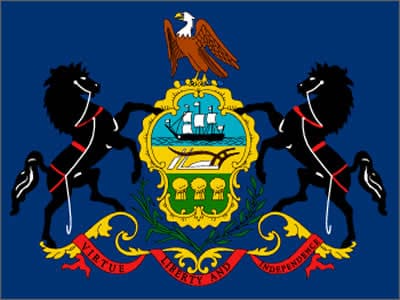Last week, Pennsylvania governor Tom Wolf laid to rest fears that the state would pass some type of “crisis” legislation regarding online gambling to help balance their struggling state budget. Governor Wolf signed off on a revenue plan that includes future revenues from an “expansion of gambling.” However, there was no promise of future action to further the proposed “expansion of gambling,” nor was there even talk of what the phrase might entail.
When asked about that portion of the revenue plan, Senate Appropriations Committee Chairman Patrick Browne stated that the plan the governor signed off on includes roughly $100 million of income generated by this so-called gambling expansion. Senator Browne also said there will be no discussion about what will constitute an “expansion of gambling” until the fall. In addition, he didn’t mention whether or not this discussion would include the topic of online gambling.
The Bigger Problems Associated With Expansion Of Online Gambling
Right now, Pennsylvania is staring down a $534 million gaping hole in their state budget. The anticipated $100 million in funds the state hopes to generate with a gambling expansion is just one of many “anticipated” streams of income they hope will help fill that massive deficit.
As of now, the state is looking to overhaul its liquor laws and push forward with the regulation of Daily Fantasy Sports. Because these two proposed revenue streams have plenty of support across the House of Representatives as well as the Senate, they are considered higher priority than an expansion of regulated online gambling. It is also important to note that regulated online gambling does not have the same high level of support in the Senate as it does in the House of Representatives, which makes a discussion more challenging. Right now, the state is obviously going to prioritize pushing through all of the low-hanging fruit in regards to income generation.
A major issue that senators have raised is the current proposed tax rate of 16 percent, which they believe is too low. Another big issue they have expressed concern over is a lack of sufficient consumer protection for online gamblers.
In its present form, HB 2150 does raise legitimate concerns regarding player safety and consumer protection. As of right now, the only state that offers an appropriate level of protection for its players in the event that an online gambling company goes bankrupt is Nevada. In fact, the language of HB 2150 is rather hypocritical in that respect. The bill stipulated that tax revenues online gaming companies owe to the state “shall be held in trust,” while players who are owed money are at the mercy of the company to decide when and how they receive the money they are owed. This, in effect, is a giant middle finger to players because the state is legally ensuring that they receive all of they money they are owed with no concern whatsoever for giving players the same level of confidence that they will get the money they are owed.
The Concern Over “Crisis” Legislation
At this point, the only reason any type of online gambling regulation would have been passed is if it was considered necessary to fixing the state’s enormous budget deficit. Though it may be frustrating on the surface, the reality is that players should be thankful Pennsylvania is putting off this debate until later. Judging by the current wording of HB 2150 and the results of hearings in the House of Representatives earlier this year, it’s pretty clear that legislators don’t have a thorough understanding of the implications of online gambling regulation beyond short-term tax dollars.
When it comes to major legislation with long-term impact, it’s important for the government to get it right, even if that means waiting longer than players would have liked. Rushing a bad bill through the House and Senate just to solve a crisis would have only created a bigger crisis with more headache down the road.
As long as the current election cycle doesn’t interfere, legal online gambling in Pennsylvania should have a much better chance of getting serious consideration this fall.

